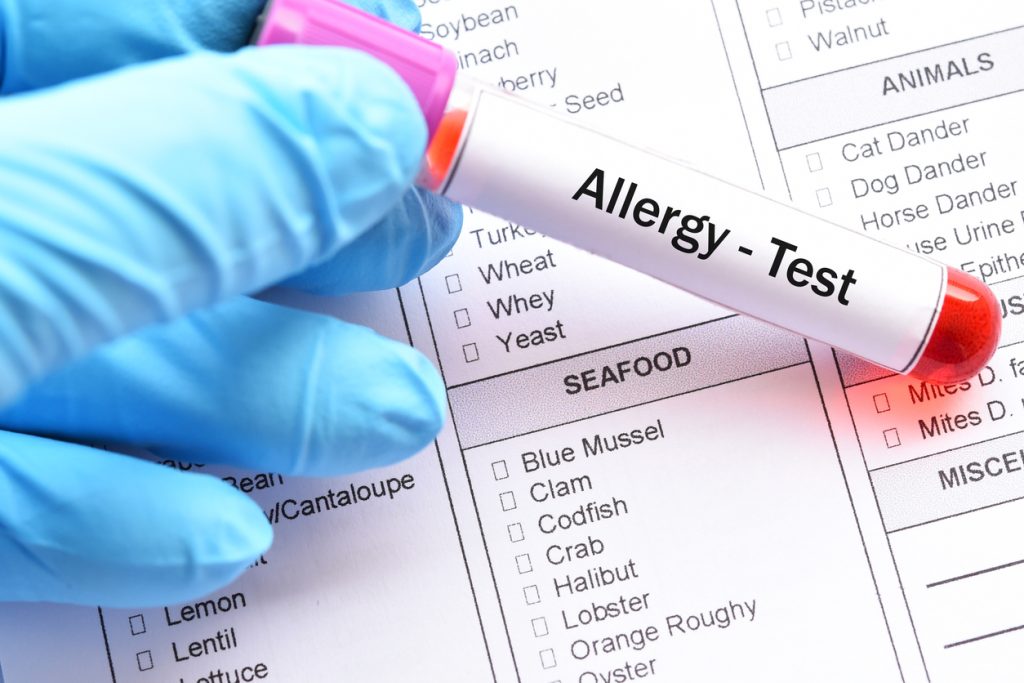
Why do you Need Food Allergy Testing?
Food allergy testing plays a significant role in the process of treating your allergies. Food allergy treatment can only be determined after a detailed diagnosis to recognize the particular allergens.
Food allergies are conditions that cause your immune system to react to specific types of foods. The immune system reaction to food allergies goes from mild rashes to abdominal pain. Food allergies are more prevalent in children than adults.
An allergic reaction to food usually takes place within a few minutes to several hours after exposure to the allergen foods.
Below are some of the main benefits gained from food allergy testing:
- Find a Treatment Solution
Food allergy testing will find the actual allergen that causes allergic reactions. You may ask yourself, with this knowledge, is it possible to find an allergist near me to provide a treatment solution that addresses my problem and helps me manage my allergy triggers.
- Help in Managing Diet
Food allergies often help you reduce entire food groups from your diet due to the concern of allergic reactions. But in some cases, you don’t need to make changes as you can still get the necessary vitamins and mineral intake.
- Severe Allergic Reactions are Prevented
Testing for allergies will prevent you from risk or reduce the chances of a severe allergic reaction called anaphylaxis
- Improves Everyday Life
When you know which foods cause an allergic reaction in your body, you can live comfortably, without magnified concern.
- Determine if Your Allergy has Been Outgrown
You can outgrow some allergies. For example, allergies to milk and eggs are frequently outgrown. A food allergy test will help determine such foods to add back to the diet.
- Understand What is Causing Your Allergy
Allergies are not always easy for you to comprehend. You may assume that a specific food is the one that gives you allergies, but that’s not always the case. Working with your allergist will help you know the specific allergens causing your negative reactions.
- Help You Make Valuable Choices
When you do an allergy test, you can avoid putting your health at risk. Therefore, the information you get from the allergy test will assist you in the decision-making process. For example, an allergy to eggs could influence a decision not to eat chicken.
Different Methods of Testing Food Allergies
Allergy testing is a reliable method for finding out which allergens are resulting in your allergic reactions. Doing an allergy test is the first step towards the successful treatment of your allergies.
Below are some of the methods used in testing food allergies:
- Skin Prick Test
In this test, a small amount of the suspected food is placed on the skin of your forearm. A doctor then pricks your skin with a needle to allow the tiny amount of the food substance to penetrate the skin’s surface.
The allergist will wait for 15 minutes or so to see if a red, raised bump forms in your forearm. If it does, it indicates the food type may be responsible for allergic reactions.
- A BloodTest
In this test, your blood sample is taken to a medical laboratory where different foods are tested for the presence of immunoglobulin E antibodies that are made in your immune system when you are endangered by an allergy-causing substance.
- Elimination Diet
This method is used to know which specific foods are causing you allergies. It entails removing certain foods from your diet for some weeks and adding them back slowly at a later date. If you have any reactions after this, it will help you determine which foods cause your allergies.
- Oral Food Challenge
In this test, you are offered a small amount of food to eat as you increase the amounts of the potential food allergen. The doctor watches for symptoms of allergic reactions. The food may be given to you in a capsule or an injection.
Management and Treatment of Food Allergies
There is no medicine to cure food allergies, although the research is still ongoing.
You need to always be prepared if you eat something with an ingredient that causes your allergic reaction. So, this needs you to have an emergency kit to stop severe allergic reactions.
Below are ways to manage and treat allergic reactions:
- Always Read Labels
Food labels today always include all ingredients used. You can find essential information depending on the allergens causing your reactions. It is worth checking whether supplements have milk, wheat products, or whether a food was produced in a facility that processes nuts.
However, you need to read every label, every time — even if you have bought the item many times before. Producers often remake ingredients, and an allergen may be part of the new formulation.
- Always Carry Your Medication
Suppose your health professional has prescribed emergency drugs for you. In that case, you should carry it with you and always carry two to ensure you’re prepared if you receive an allergic reaction. You should never leave home without your medications
- Dietary Avoidance
The favorable way to manage an allergic reaction is to recognize the food that causes the allergy and avoid eating it. You can look for other sources of specific nutrients to supplement allergy causing foods.
- Oral Immunotherapy
This is a new way to manage your food allergies. Oral Immunotherapy helps you to reduce allergic symptoms. You can use this method after exposure to an allergy causing food to help relieve itching, and other symptoms. Antihistamines can’t care for a harsh allergic reaction.
- Injection of Epinephrine
This is the best drug if you experience severe allergic reactions. This device combines a syringe and a concealed needle; you use it to inject a single dose by pressing it against your thigh. This injection can be used during an emergency.
Conclusion
If you think you have a food allergy, avoid exposure to the food entirely until you see an allergy professional. Food allergies can bring more serious reactions. To avoid any mistake, you need to be aware of any foods that induce an allergic reaction through allergy testing.

























